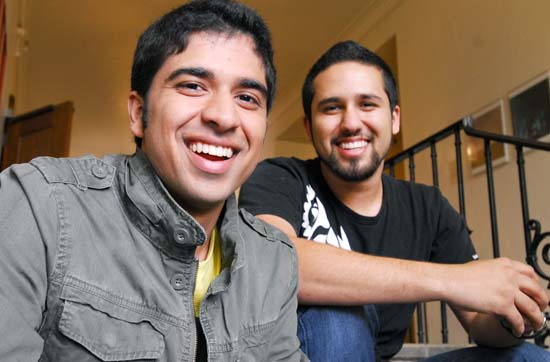Afghan election fraud results in runoff

By Kelly Zhou
Oct. 27, 2009 9:16 p.m.
In the 2004 election, people were optimistic. Afghan citizens brought their families home to Afghanistan, and they believed that the government would change for the better, said Nushin Arbabzadah, an Afghan journalist and visiting scholar at the UCLA’s Center for India and South Asia.
Yet five years later, with the current election undermined by corruption and the country filled with war, “Afghans are stuck between a rock and a hard place,” said Reza Hessabi, second-year neuroscience student and outreach coordinator for the UCLA United Afghan Club.
Afghan people are not offered many options right now, between the powerful Taliban and the national government, Hessabi said.
Some members of the United Afghan Club see value in Afghanistan’s efforts toward democracy but said they thought that there is still quite a way to go ““ merely holding this election does not make Afghanistan a democracy, Hessabi said.
While Hessabi and Salmon Hossein, fourth-year political science and international development studies student and founder of the United Afghan Club, are not personally affected by the elections, the significance is still felt at UCLA.
“There are so many tensions between the Muslim world today and the West,” Hossein said. “Students need to learn how to mitigate these (problems). This is the globalized world they’re going to grow up in and are going to contribute to when they leave college. It’s important to understand different cultures and alleviate the tensions.”
During the Aug. 20 election, current president Hamid Karzai captured 55 percent of the vote, while his closest opponent, former prime minister Abdullah Abdullah, only received 28 percent of the electorate. With more than 50 percent in a preliminary vote tally, Karzai had enough support to win the election. However, after investigations by U.N. officials and independent organizations, almost 25 percent of all of the votes cast were declared fraudulent, according to the New York Times. With one-third of his votes suspected of fraud, Karzai would no longer have enough votes to be declared president. Thus, a runoff election was announced between Karzai and Abdullah.
The runoff, scheduled for Nov. 7, has met much criticism and indifference because of the circumstances surrounding the election. Despite the fraud found in the first round of the election, Karzai is still expected to win.
“He has money, power and his name ““ his name has been in the mind of the public for so long,” Hessabi said.
With all of the corruption in the election, people do not expect the government to truly change after the election.
“There was so much fraud in the election (that) people feel their vote doesn’t matter anyway,” Hossein said. “Voter apathy, weather, fraud, Taliban influence: A lot of things are going against these elections.”
As winter sets in, it will be more difficult for citizens in rural areas to access polling booths for the runoff, and logistics such as ballot transportation via donkey only create greater problems, Hossein said.
“These people will have less opportunity to take part in the political process,” he added. “This will disenfranchise voters.”
Furthermore, to some Afghans, the risks of angering the Taliban may outweigh the benefits of voting.
“Survival is so much more important than politics, especially when the country is so weak in the first place,” Hossein said. “To the people, voting and speaking their mind in the (runoff) election might be fraudulent again and might not make a big difference, but there is a big risk to their lives because their children may be hurt on the way to the polling booth or injuries may be inflicted.”
A primary reason people voted the way they did in the initial election was the influence of ethnic factions, Arbabzadah said.
“Politicians (in Afghanistan) instituted this notion of racial politics, so they cater to their groups in order to win,” Hossein said.
With all of these factors impacting Afghanistan’s political environment, residents have low expectations for the future of the government, Arbabzadah said.
“(The people in Afghanistan) are disappointed with democracy,” Arbabzadah said. “They think there is no point because the government that comes to power is not transparent. They don’t want a corrupt system under the cloak of democracy.”


